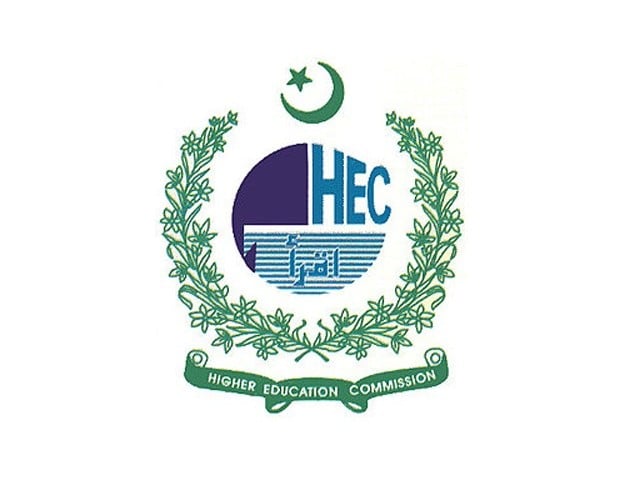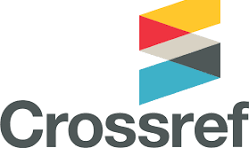Assessing the Role of Integrated Supply Chain and Islamic Practices in Enhancing Halal Supply Chain Integrity (HSCI) and Performance in Pakistan
Keywords:
Pakistan, halal cosmetics, integrated supply chain, operations performance, halal integrity, operations managementAbstract
The research studies the effect of Integrated Supply Chain (SCI) and Halal Supply Chain Integrity (HSCI) on cosmetics SMEs in Pakistan. Tap of 25 SMEs working in diverse and leading cities in Pakistan, including Karachi, Hyderabad, Lahore, and Islamabad, was made. To test the hypotheses that the latent variables (LVs) of the construct are linked, the sample in this research used a structured equation model (SEM) with Smart PLS. Results show that SCI and commitment to halal improve operational efficiency and customer confidence and suggest implications to managers considering increasing competitiveness in Pakistan's halal cosmetics market.
References
1. Ab Hamid, M. R., Sami, W., & Sidek, M. M. (2017, September). Discriminant validity assessment: Use of Fornell & Larcker criterion versus HTMT criterion. In Journal of Physics: Conference series (Vol. 890, No. 1, p. 012163). IOP Publishing.
2. Ahmed, W., Najmi, A., & Khan, F. (2020). Examining the impact of institutional pressures and green supply chain management practices on firm performance. Management of Environmental Quality: An International Journal, 31(5), 1261-1283.
3. Ali, A. A., & Mahmood, A. (2024). How do Integrated Supply Chain and product innovation capability drive sustainable Operations Performance? Sustainability, 16(277).
4. Ali, M. H., Iranmanesh, M., Tan, K. H., Zailani, S., & Omar, N. A. (2022). Impact of Integrated Supply Chain on halal food supply chain integrity and food quality performance. Journal of Islamic Marketing, 13(7), 1515-1534
5. Ali, M. H., Iranmanesh, M., Tan, K. H., Zailani, S., & Omar, N. A. (2022). Impact of Integrated Supply Chain on halal food supply chain integrity and food quality performance. Journal of Islamic Marketing, 13(7), 1515-1534.
6. Ali, M., Iranmanesh, M., Tan, K., Zailani, S., & Omar, N. (2021). Impact of Integrated Supply Chain on halal food supply chain integrity and food quality performance. Journal of Islamic Marketing. https://doi.org/10.1108/JIMA-08-2020-0250
7. Ali, M., Tan, K., Pawar, K., & Makhbul, Z. (2014). Extenuating food integrity risk through Integrated Supply Chain: The case of halal food. Industrial Engineering and Management Systems, 13(2), 154-162.
8. Ali, M., Zhan, Y., Alam, S., Tse, Y., & Tan, K. (2017). Food supply chain integrity: the need to go beyond certification. Industrial Management & Data Systems, 117(9), 1589-1611. https://doi.org/10.1108/IMDS-09-2016-0357
9. Ariff, A. L., Nursalwani, M., & Amizi, A. M. (2021, July). SME performance towards marketing halal products. In AIP Conference Proceedings (Vol. 2347, No. 1). AIP Publishing.
10. Baridwan, I., & Zaki, I. (2020). The impact of lean practices and process innovation on the performance of small and medium-sized enterprises: Mediating role of supply chain management. International Journal of Supply Chain Management.
11. Bester, J., & Hofisi, C. (2020). Implementing traditional performance management in the innovative age: A new model for Botswana’s public sector. Africa’s Public Service Delivery & Performance Review, 8(1), 11.
12. Cahyono, Y., Purwoko, D., Koho, I. R., & others. (2023). The role of supply chain management practices on competitive advantage and performance of halal agroindustry SMEs. Uncertain Supply Chain Management. https://doi.org/10.5267/j.uscm.2022.10.012
13. Chahal, H., Gupta, M., Bhan, N., & Cheng, T. (2020). Operations management research grounded in the resource-based view: A meta-analysis. International Journal of Production Economics, 230, 107805. https://doi.org/10.1016/j.ijpe.2020.107805.
14. Cheong, C. W. H. (2021). Risk, resilience, and Shariah-compliance. Research in International Business and Finance, 101313. https://doi.org/10.1016/j.ribaf.2020.101313
15. Dekkers, R., de Boer, R., Gelsomino, L. M., de Goeij, C., Steeman, M., Zhou, Q., Sinclair, S. & Souter, V. (2020). Evaluating theoretical conceptualizations for supply chain and finance integration: A Scottish focus group. International Journal of Production Economics, 220, 107451. https://doi.org/10.1016/j.ijpe.2019.07.024.
16. El-Garaihy, W., Badawi, U., Seddik, W., & Torky, M. (2022). Investigating performance outcomes under institutional pressures and environmental orientation motivated green supply chain management practices. Sustainability.https://doi.org/10.3390/su14031523.
17. Fernando, Y., Jasmi, M. F. A., Wahyuni-TD, I. S., Mergeresa, F., Khamis, K. A., Fakhrorazi, A., & Omar, R. (2023). Integrated Supply Chain and halal frozen meat product returns. Journal of Islamic Marketing, 14(5), 1369-1395. https://doi.org/10.1108/JIMA-05-2021-0144
18. Ferreira, M., Zambaldi, F., & Guerra, D. D. S. (2020). Consumer engagement in social media: scale comparison analysis. Journal of product & brand management, 29(4), 491-503.
19. Ganbold, O., Matsui, Y., & Rotaru, K. (2021). Effect of information technology-enabled Integrated Supply Chain on firm's Operations Performance. Journal of Enterprise Information Management, 34(3), 948-989. https://doi.org/10.1108/JEIM-10-2019-0332
20. Ghaffar, A., & Hassan, S. S.-U. (2023). Corporate capital structure practices and shareholder’s wealth of Shariah compliant firms of Pakistan. International Journal of Social Science & Entrepreneurship, 3(1), 1-15. https://doi.org/10.58661/ijsse.v3i1.96
21. Giyanti, I., Indrasari, A., Sutopo, W., & Liquiddanu, E. (2020). Halal standard implementation in food manufacturing SMEs: Its drivers and impact on performance. Journal of Islamic Marketing. https://doi.org/10.1108/JIMA-11-2019-0243
22. Hair, J., Hollingsworth, C. L., Randolph, A. B., & Chong, A. Y. L. (2017). An updated and expanded assessment of PLS-SEM in information systems research. Industrial management & data systems, 117(3), 442-458
23. Haji-Othman, Y., & Yusuff, M. S. S. (2022). Assessing reliability and validity of attitude construct using partial least squares structural equation modeling. Int J Acad Res Bus Soc Sci, 12(5), 378-385.
24. Hasan, Z. (2021). Making Indonesia an integrated halal zone and world halal sector hub through the implementation of a Halal supply chain. Journal of Islamic Economic and Business Research, 1(1), 1-14
25. Helmi Ali, M., Iranmanesh, M., Tan, K. H., Zailani, S., & Omar, N. A. (2022). Impact of Integrated Supply Chain on halal food supply chain integrity and food quality performance. Journal of Islamic Marketing, 13(7), 1515-1534. https://doi.org/10.1108/JIMA-12-2018-0240
26. Heydari, J., & Rafiei, P. (2020). Integration of environmental and social responsibilities in managing supply chains: A mathematical modeling approach. Computers and Industrial Engineering, 149, 106495. https://doi.org/10.1016/j.cie.2020.106495.
27. Indarti, N., Lukito-Budi, A. S., & Islam, A. M. (2020). A systematic review of halal supply chain research: to where shall we go? Journal of Islamic Marketing, 12(9), 1930-1949.
28. Ishtiaque, S., Siddiqui, D. A., & Ahmed, W. (2020). Impact of the technology-based integrated responsive supply chain on Operations Performance: a case of a volatile market. International Journal of Logistics Systems and Management, 35(3), 387-409.
29. Khaliqi, M., & Pane, T. C. (2021). Young consumer awareness of halal food in Indonesia. In E3S Web of Conferences (Vol. 332, p. 04004). EDP Sciences
30. Khan, N. H., Ullah, F., Khan, T. A., Zafar, U., Farhan Ali Khan, M., Mustaqeem, M., ... & Ji, X. Y. (2021). Personal-care cosmetic practices in Pakistan: current perspectives and management. Clinical, Cosmetic and Investigational Dermatology, 9-21.
31. Khokhar, M., Iqbal, W., Hou, Y., Abbas, M., & Fatima, A. (2020). Assessing supply chain performance from the perspective of Pakistan’s manufacturing industry through social sustainability. Processes, 8(9), 1064.
32. Mani, V., Jabbour, C., & Mani, K. (2020). Supply chain social sustainability in small and medium manufacturing enterprises and firms’ performance: Empirical evidence from an emerging Asian economy. International Journal of Production Economics, 107656. https://doi.org/10.1016/j.ijpe.2020.107656
33. Masa’deh, R., Muheisen, I., Obeidat, B., & Bany Mohammad, A. (2022). The impact of Integrated Supply Chain on Operations Performance: An empirical study. Sustainability, 14, 16634. https://doi.org/10.3390/su142416634
34. Mehmood, W., Ali, A., & Mohd-Rashid, R. (2023). The impact of Shariah-compliant status and Shariah regulation on IPO demand in Pakistan. Journal of Money Laundering Control. https://doi.org/10.1108/JMLC-03-2023-0015
35. Memon, A., Memon, M., Pitafi, A., & Panhwer, P. (2020). Investigation of halal certification and country of origin of FMCG products. Academy of Marketing Studies Journal. https://doi.org/10.33166/acdmhr.2020.01.003
36. Menne, F., Surya, B., Yusuf, M., & others. (2022). Optimizing the financial performance of SMEs based on Sharia economy: Perspective of economic business sustainability and open innovation. Journal of Open Innovation: Technology, Market, and Complexity, 8(1), 18. https://doi.org/10.3390/joitmc8010018
37. Mohajan, H. K. (2020). Quantitative research: A successful investigation in natural and social sciences. Journal of Economic Development, Environment, and People, 9(4), 50-79.
38. Mohammadian, F., & Hajipour, B. (2016). Halal cosmetics supply chain- a conceptual model. International Journal of Supply Chain Management, 5(1), 33-43.
39. Muhammad, H. U., & Isfianadewi, D. (2023). How Supply Chain Management Practices Influence Customer Development and Operations Performance. HOLISTICA – Journal of Business and Public Administration. https://doi.org/10.2478/hjbpa-2023-0001
40. Mukhtar, H., & Fazal, S. (2022). The impact of innovativeness on supply chain performance: Mediating role of Integrated Supply Chain. iRASD Journal of Management, 4(3), 495–508. https://doi.org/10.52131/jom.2022.0403.0094
41. Najeeb H. K. (2021). SMEs: An unloved story. International the news. Available online at: https://www.thenews.com.pk/print/920363-smes-an-unloved-story (accessed September 5, 2024).
42. Nandi, M. L., Nandi, S., Moya, H., & Kaynak, H. (2020). Blockchain technology-enabled supply chain systems and supply chain performance: A resource-based view. Supply Chain Management, 25(6), 841-862. https://doi.org/10.1108/SCM-12-2019-0444.
43. Naseri, R. N. N., & Abdullah, R. N. R. (2022). Trends and Growth of Halal Cosmetic Industry in Malaysia. International Journal of Academic Research in Business and Social Sciences, 12(2), 487-495.
44. Park, Y. S., Konge, L., & Artino Jr, A. R. (2020). The positivism paradigm of research. Academic medicine, 95(5), 690-694.
45. Putri, B., Muhar, A., & Miraza, Z. (2022). Resource-based view strategy as a determinant of business performance moderated by market orientation in MSMEs culinary sector in Medan city. Journal of Management and Business.https://doi.org/10.24123/jmb.v21i1.570.
46. Rajendran, S., & Kamarulzaman, N. (2019). The influences of entrepreneurs' Islamic practices on halal supply chain integrity: A study in the herbal-based food industry. International Journal of Supply Chain Management, 8(3), 827-832.
47. Shahzad, F., Du, J., Khan, I., & Wang, J. (2022). Decoupling Institutional Pressure on Green Supply Chain Management Efforts to Boost Organizational Performance: Moderating Impact of Big Data
48.
Analytics Capabilities. Frontiers in Environmental Science. https://doi.org/10.3389/fenvs.2022.911392.
49. Siddique, M. A., Haq, M., & Rahim, M. (2022). The impact of Shariah-compliant products on the pace of economic growth: Evidence from the Islamic banking industry of Pakistan. International Journal of Islamic and Middle Eastern Finance and Management.
50. Sin, M., Razalli, M., & Ismail, R. (2019). The search for best practices of the Malaysian halal cosmetics industry to improve firm performance. International Journal of Islamic Marketing and Branding. https://doi.org/10.1504/IJIMB.2019.10029043
51. Soon, J., Chandia, M., & Regenstein, J. (2017). Halal integrity in the food supply chain. British Food Journal, 119(1), 39-51. https://doi.org/10.1108/BFJ-04-2016-0150
52. T4Tutorials. (2020). The moderating effect of Halal Assurance System on the relationship between Halal Food Supply Chain Management and Halal Integrity Assurance. T4Tutorials. https://t4tutorials.com/management-information-system-research-topics
53. Tieman, M. (2011). The application of halal in supply chain management: In‐depth interviews. Journal of Islamic Marketing, 2(2), 186-195. https://doi.org/10.1108/17590831111139893
54. Yeh, T.-M., Pai, F.-Y., & Wu, L.-C. (2020). Relationship stability and supply chain performance for SMEs: From internal, supplier, and customer integration perspectives. Mathematics, 8(11), 1902. https://doi.org/10.3390/math8111902
55. Zhang, X., Li, R. Y. M., Sun, Z., Li, X., Samad, S., Comite, U., & Matac, L. M. (2022). Integrated Supply Chain and its impact on operating performance: Evidence from Chinese online companies. Sustainability, 14(11), 14330. https://doi.org/10.3390/su142114330
Downloads
Published
Issue
Section
License
Copyright (c) 2024 Archives of Management and Social Sciences

This work is licensed under a Creative Commons Attribution 4.0 International License.




